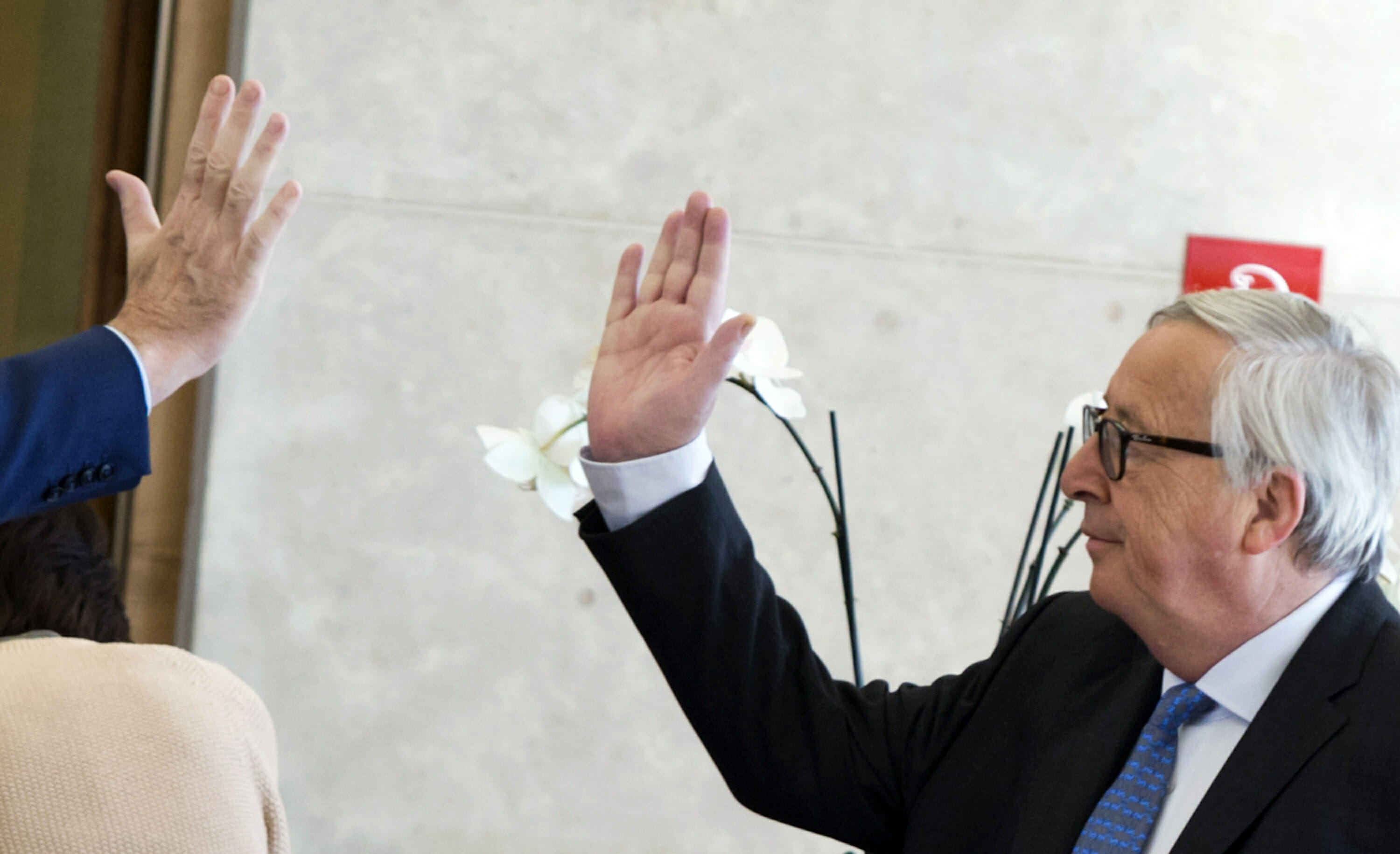
EU candidates face off in live debate a week before polls
BRUSSELS (AP) — The leading candidates in the European Union elections grappled with the thorny issue of migration, rising nationalism and even testy ties with U.S. President Donald Trump in a largely drama-free debate Wednesday barely a week before May 23-26 polls.
Quizzed by three European journalists over 90 minutes, the six candidates for Jean-Claude Juncker’s post as president of the EU’s powerful executive arm also tackled youth unemployment, taxes and climate change in a debate among six mainstream party candidates that was conducted almost exclusively in English despite their different nationalities.
Some 400 million people are eligible next week to choose members of the European Parliament, which is the EU’s only democratically elected institution. Turnout is usually low, and those who do cast ballots routinely vote in protest against the policies of national governments.
Surveys suggest that nationalist and far-right parties will gain ground but that mainstream groups will hold control over the assembly despite losing seats.
One of the biggest threats to EU unity has been the inability to manage the arrival of well over 1 million migrants in 2015. Italy and Greece felt abandoned to deal with people seeking refuge or jobs, while other countries only watched.
“Every time a person dies in the Mediterranean, Europe loses a bit of its soul. So we’re losing who we are, we’re losing our values by not solving this problem,” said Frans Timmermans, a Dutch candidate from the Socialist Party of Europe and Juncker’s right hand man at the European Commission.
The political crisis has been a vote winner for anti-migrant and far-right parties, notably in Austria, Britain, France and Italy.
“Nationalism, and egoism, is back on this continent,” said Manfred Weber, a German from the center-right European People’s Party, the biggest bloc in the assembly, and a favorite to win Juncker’s job.
He said a system should be set up “to defend our values” by penalizing breaches of the rule of law and other democratic norms by some member governments. “We can also use the funds, the money of Europe, to sanction those who are not ready to respect our fundamental principles,” he added.
One of the EU’s biggest challenges has been establishing its place on the global political stage. The 28-nation bloc is the world’s biggest donor of aid, providing extensive humanitarian assistance notably to the Palestinian territories and across Africa.
Yet the EU has struggled to speak with one voice, and can be slow to act. The candidates were asked how they would handle someone like Trump, who has slapped tariffs on EU steel exports and threatens to do the same with cars, while demanding that the Europeans spend more on defense.
Timmermans said it is the first time the EU is faced with an American president “who thinks it’s in his interest to have a weak and divided Europe. That’s dangerous for us.”
“We need to stand firm against Trump, firm against (Russian President Vladimir) Putin. If we do not do that they will dictate the tone and the content of the music,” Timmermans said.
Margrethe Vestager, a Danish politician with the liberal ALDE group, said that in her current role as EU competition commissioner “I make sure that businesses play by the rule book so you as a consumer have choice, quality and fair prices. For me, the most important thing is that you are empowered to live the life you want to live in your community.”
The Czech Republic’s Jan Zahradil, from the Alliance of Conservatives and Reformists, the most Eurosceptic of the parties taking part in the debate argued for returning control to Europe’s capitals, rather than cede more sovereignty to Brussels.
“I would propose an EU which is scaled back, which is flexible, which is decentralized,” he said, adding that the commission under his leadership would be one “which respects national governments and which cooperates with them, which doesn’t fight them, which doesn’t patronize them, which doesn’t lecture them.”
Possibly none of the six candidates will succeed in winning the commission’s top post. In recent weeks, EU Council President Donald Tusk has insisted that is a decision for national leaders, rather than the EU parliament’s plan to give the post to the leading candidate.
It was unclear whether the debate was widely seen, as few national broadcasters carried it live. However, many websites provided access.
___
For more news from The Associated Press on the European Parliament elections, go to https://www.apnews.com/EuropeanParliament
The Western Journal has not reviewed this Associated Press story prior to publication. Therefore, it may contain editorial bias or may in some other way not meet our normal editorial standards. It is provided to our readers as a service from The Western Journal.
Truth and Accuracy
We are committed to truth and accuracy in all of our journalism. Read our editorial standards.
Advertise with The Western Journal and reach millions of highly engaged readers, while supporting our work. Advertise Today.












